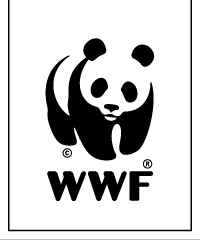Lignite or cheaper and clean energy?
Wednesday, 11 March 2015
Today WWF Greece launches a new report demonstrating that there is no dilemma in choosing between the planned lignite plant Ptolemaida V and hybrid RES and pumped hydro energy storage systems (PHES). According to the economic and technical assessment performed in the report, the latter prove to be not only cleaner, but more profitable as well.
The report investigates the viability of alternative solutions, based on RES, to the Ptolemaida V plant. In specific, the current study focuses on the potential for substituting Ptolemaida V with hybrid systems that combine PHES units and wind and PV stations, proving that it is possible to meet the base load demands of the lignite plant. Most importantly, the RES-based alternatives prove to be economically more favourable- under circumstances their Levelised Cost of Energy is lower by even 47%, compared to that of Ptolemaida V.
Hybrid systems were chosen in order to overcome the challenge of meeting base load demands with intermittent renewable sources. In addition, the current study focuses on the conversion of seven pairs of PPC’s existing hydroelectric power (HP) plants to PHES units, eliminating the need to construct new reservoirs, minimizing, thus, both environmental impacts and the associated financial costs.
Complementary to large scale solutions, the study also investigates small scale alternatives that can further reduce the actual operation hours of Ptolemaida V. The economic assessment performed shows that there is great potential in the development of household PV systems through the implementation of the net-metering scheme proposed in Greece a few months ago. Furthermore, the drop of battery costs will allow the deployment of stand-alone PV systems, that will eventually become directly competitive to centralised electricity production in Greece. Under circumstances, pay back time for a fully autonomous energy producer can be approximately 12 years.
“Things are now clear. Ptolemaida V was planned quite some years ago, under completely different circumstances. Today, it becomes evident that there is a cheaper and cleaner alternative. As the study that WWF Greece has launched today debunks the myth of cheap domestic lignite resources, it rests with the newly elected Greek government to opt for a better and economically more affordable alternative” says WWF Greece CEO Demetres Karavellas. He further adds that “a timely shift to a new energy business model for PPC will create more jobs, contribute to lower electricity rates while reducing the country’s footprint. What is needed now is political will and leadership. Do we have it?”
Share this



